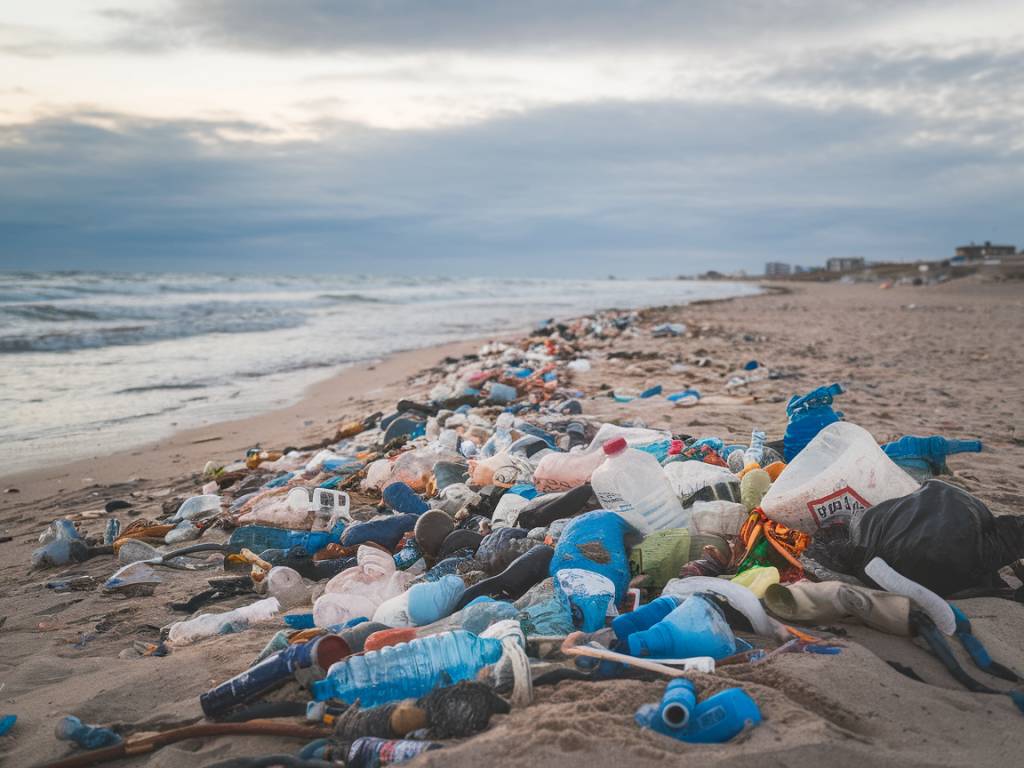The Hidden Perils of Plastic Waste in Our Oceans
Imagine for a moment the gentle sound of ocean waves, a tranquil blue horizon, and vibrant marine life thriving beneath the surface. Now, picture that serene scene scattered with plastic debris, disrupting the harmony of the oceanic ecosystem. Unfortunately, this isn’t just a dystopian vision—it’s our current reality. But have you ever paused to consider how deeply plastic waste impacts not only our oceans but also our own health?
Plastic: From Convenience to Catastrophe
Plastic was once hailed as a revolutionary invention, a material that made life easier and more convenient. However, this convenience comes at a dire cost. Each year, over 8 million tonnes of plastic end up in our oceans, a figure even more staggering than it sounds. Picture this: it’s akin to dumping a garbage truck filled with plastic into the ocean every minute. What happens to all this waste once it hits the waves?
The Journey of Ocean Plastic
The ocean is not a static reservoir; it’s a dynamic entity of swirling currents and migrating wildlife. When plastic enters this ecosystem, it breaks down into smaller fragments known as microplastics, which then permeate every level of the marine food chain. Sea animals ingest these tiny particles, mistaking them for food, leading to devastating outcomes.
But the ocean’s journey of plastic doesn’t end at sea life. Through the seafood we consume, these microplastics find their way back to us. Startling, isn’t it?
How Plastic Affects Human Health
Here’s a question: as these microplastics infiltrate marine organisms, what impact do they have on us? Scientists have begun to unravel this disturbing mystery. Studies suggest that microplastics can carry harmful pollutants into our bodies, which may contribute to health issues ranging from hormonal imbalances to cancer.
Moreover, these particles aren’t just ingested through seafood. Microplastics contaminate the water we drink and the air we breathe. Yes, microplastics airborne! Suspended in the atmosphere, they silently infiltrate our living environments.
Environmental Health Risks and Plastic Waste
Plastic pollution isn’t merely a marine dilemma; it’s a crisis for global health. As plastics degrade, they release toxic chemicals, such as bisphenol A (BPA) and phthalates, into our environment, compounds known for their detrimental health effects. The pervasive nature of these pollutants raises a crucial question: how sustainable is our current mode of living?
- Can we continue to rely on materials that fully break down only over centuries?
- Are we willing to risk the health of our planet and our future generations?
Turning the Tide: Sustainable Choices for Better Health
The good news? We can make a difference. Many people are already embracing sustainable alternatives, opting for reusable products, supporting local clean-up efforts, and advocating for stricter regulations on plastic production. It’s a collective effort that transcends borders and binds us in a shared responsibility toward our environment.
Consider this: what if each one of us could significantly reduce our plastic footprint? By swapping single-use plastics for sustainable options or simply recycling more diligently, we can all contribute to a healthier planet.
Community, Change, and Hope
Let’s dive into some inspiring stories. Fishermen in the Philippines have started using discarded plastics to create small boats, literally transforming waste into a vessel for a sustainable livelihood. In France, supermarkets are banning plastic packaging entirely, replacing it with biodegradable alternatives.
These examples reflect a broader movement—a merging of innovative economic solutions with environmental stewardship.
Your Role in an Interconnected World
You may wonder, « What impact can I, a single individual, have? » The truth is, monumental change is often the result of small, consistent actions. Refraining from using plastic straws might seem like a trivial gesture, yet it contributes to a cascading effect of environmental consciousness. Spread the word, inspire others, and become part of a larger, impactful narrative.
As we ponder the interconnectedness of our actions and their consequences, we find opportunity. Opportunity not just to rethink our habits but to reshape our future, crafting a legacy of coexistence and respect for our planet and its diverse inhabitants.
So, next time you find yourself on a beach, gazing out at the endless expanse of ocean, remember: every action you take reverberates across that vast ecosystem and beyond. Together, through informed choices and collective resolve, we can steer our ship away from the storm of plastic waste toward calmer and cleaner seas.

